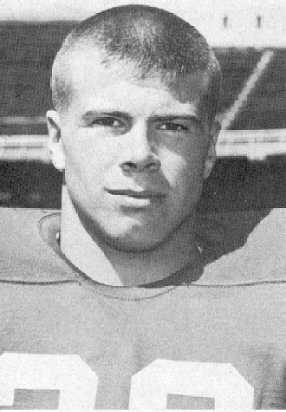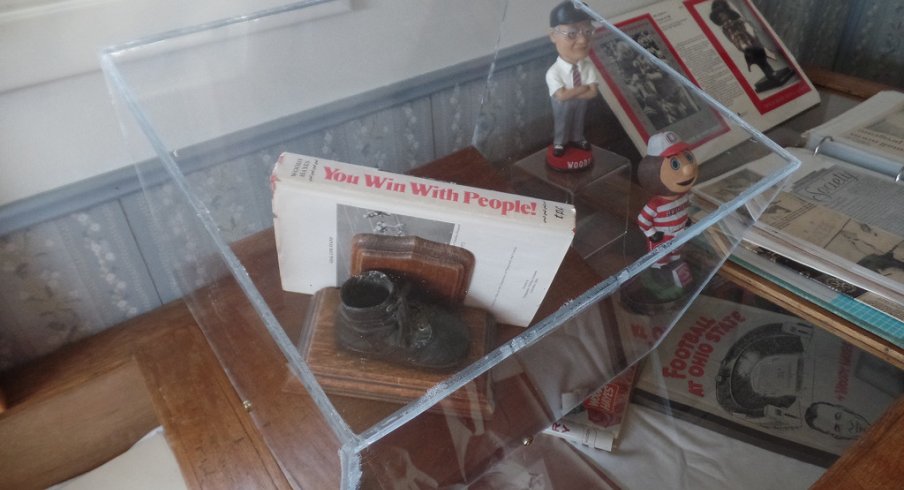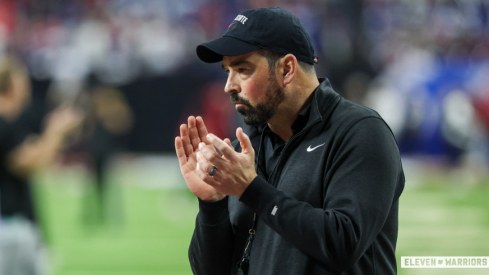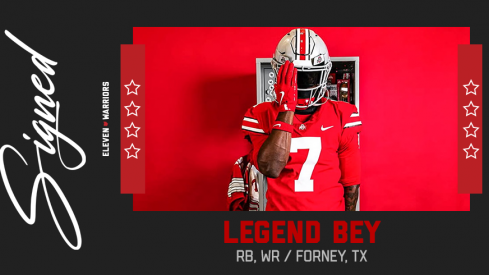My mom was born on Jan. 18, 1951 with a cardiac condition that doctors figured out would eventually kill her. She required open heart surgery, which wouldn't have been that big of a deal except the kind of surgery she required hadn't been invented yet.
Luckily for her (and, you know, me and my sister), a Lebanese-American doctor named Michael DeBakey was working on a solution. Dr. DeBakey was already a legend by this point; he had revolutionized heart surgery with a number of procedures of his own invention, he helped invent the concept of MASH units during World War II, and he was also one of the first surgeons to habitually record his surgeries on film. Also, he ended up on Nixon's "Enemies List," which is pretty funny.
Anyway, at 15 my mom found her life being saved by a man whose entire career had led him to that exact moment when she needed him. For her, it was an insanely lucky break in a life that needed one. But for Dr. DeBakey, it was simply the logical result of having lived a life in service for others.

Don Unverferth was probably the worst multi-year starting quarterback in Ohio State history.
Eleven Warriors has written about him before; as the guy taking snaps for Woody Hayes from 1963 through 1965, you're going to find your place in the annals of Buckeye lore whether you were straight up garbage or not. And to be (somewhat) fair, he led a number of memorable drives, held the total passing yardage record for a not insignificant amount of time, and beat Michigan twice in three tries.
But Unverferth was also almost indescribably bad at passing the football, something that most quarterbacks are expected to do. Over three years, his completion rate was exactly 47%. Unverferth somehow managed to account for only 12 touchdowns in his entire career, which a feat which actually seems even more difficult to accomplish than the six that J.T. Barrett threw against Bowling Green in three quarters last season.
What's actually worse might be the 26 interceptions he threw or the -123 yards of rushing that he accumulated or possibly even the fact that he has easily the worst passer rating of any Ohio State QB with more than 100 passing attempts. Like, we rag on Joe Bauserman, but Don Unverferth makes Good Throw Joe look like Steve Young.
In short, Don Unverferth was a screamingly bad quarterback and I have to believe that he had incriminating pictures of Woody Hayes or something, because a cross-eyed mallard wearing a leather helmet probably would've been just as productive a quarterback and would've cost a lot less to house and feed.
And none of that, absolutely none, means a single thing compared to what famed cardiologist Dr. Donald Unverferth was able to accomplish after football and what his legacy has meant to others.
Shockingly, Unverferth did not go to the NFL to ply his trade after college. Instead, plans A through Z involved a higher calling, and Don Unverferth became Dr. Donald Unverferth, famous cardiologist. You can read some of his papers and writings here and here, but a fat lot of good that it'll do you because he was a genius and you thought you were going to read some kind of quixotic quest for success instead of essays in a medical journal (unless you're a big fan of learning about regional myocyte hypertrophy and increased interstitial myocardial fibrosis in hypertrophic cardiomyopathy. I don't know your life).
Dr. Unverferth stayed at Ohio State and eventually oversaw the first heart transplants performed at OSU during the 1980s, starting a process that would transform OSU medicine into something many never thought it'd be: cutting edge and world-renowned. Hospitals and universities horde talent like Smaug hoards gold, and Dr. Unverferth was as good as gold.
But you’d never hear him talk about such achievements, said Dr. Charles Bush, a cardiologist and Unverferth’s colleague at Ohio State.
“Don was clearly a leader,” Bush said. “He was not somebody who would go around tooting his own horn.”
"Was" is unfortunately the operative word here. Just two years after Dr. Unverferth helped usher Ohio State medicine into a new era, he tragically died from a brain tumor. He was only 43 years old, but he wasn't done helping others.
This is where Dr. Unverferth's wife Barbara comes in. A pathologist, Barbara knew how important her husband was to his patients, and wanted to provide a way for his life's work to continue to provide for others. So...
NEWARK – In the spring of 2015, doctors told Henry "Kennie" Hayes he only had 10 to 12 months to live.
...
Hayes was placed on the [heart] transplant list, hoping a donor would be found. On March 16, he got the call and rushed to OSU.
His surgery was successful. ... Because he had to go back to the hospital for tests during the first month after surgery, OSU allowed his family to stay at the Unverferth House, which provides furnished apartments for heart transplant recipients and their families.
The house is named for OSU cardiologist Donald V. Unverferth, who helped found the hospital's heart transplant program. Families who live outside of Franklin County can stay there for free while their loved ones are being treated.
"The importance of that program is just unreal," Hayes said.
...
He's passionate about encouraging people to donate to the Unverferth House and he's hoping to raise awareness about the importance of being an organ donor.
The Unverferth House was established by Barbara shortly after his death and is still doing incredible work for heart patients and their families. You can visit their website here, but more importantly, you can help their mission by following them on Twitter and making sure that you stay up to date with their various fundraisers that they have throughout the year (there's a golf outing in just over a month!).
While Don Unverferth probably set the game of football back about three decades, his work meant more to Ohio State and his patients than a thousand Heismans. The Unverferth House stands as both a testament to his excellence as a physician and as a caring, dedicated person who knew what his true calling in life was. As Barbara once said:
“The idea (for the Unverferth House) really came from his patients, because they loved him dearly,” she said last week in the Upper Arlington house she and her husband shared for 10 years. “He would’ve so loved something like that.”
And Ohio State loves him for it.
Michael DeBakey, a man who was probably the most important surgeon in American history, who operated on the likes of Boris Yeltsin, who was awarded virtually every award a civilian can attain, still called my mom twice a year for decades after her surgery to see how she was doing, communicating with her all the way up until his death in 2008.
It was a small but significant gesture that constantly reminds me that people like Dr. DeBakey and Dr. Unverferth aren't just important footnotes to be appreciated as a token nod towards altruism, they are exemplars of the idea that the world cannot function as we know it without the contributions of people whose existence is devoted to making the lives of others better. Their work for their fellow man is more lasting and meaningful than the hollow boasts of someone who can only point to their own lives as an indicator of success.
Don Unverferth was a godawful quarterback by pretty much every statistical measure. If he were to play today, he'd be ridiculed and run off the team faster than you can count to 85 scholarships.
But as a doctor, as a servant for others, as a human being, he became possibly the greatest person to play quarterback in Ohio State history.


